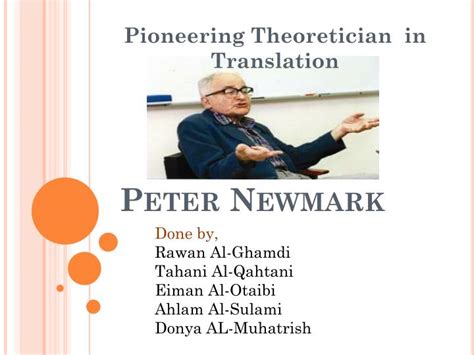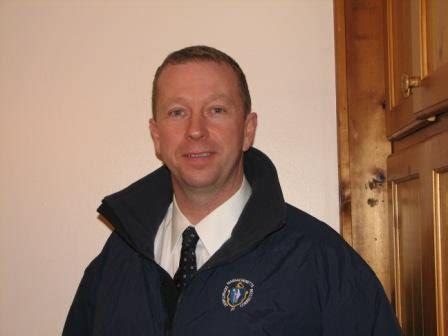A Quote by Peter Newmark
A satisfactory translation is not always possible, but a good translator is never satisfied with it. It can usually be improved. (Newmark)
Quote Topics
Related Quotes
The translator has to be a good writer. The translator has to hear music too. And it might not be exactly your music because the translator needs to translate the music. And so, that is what you are hoping for: a translator who gets what you are doing but who also gets all the ways in which it won't work in the new language.
Translation is a kind of transubstantiation; one poem becomes another. You can choose your philosophy of translation just as you choose how to live: the free adaptation that sacrifices detail to meaning, the strict crib that sacrifices meaning to exactitude. The poet moves from life to language, the translator moves from language to life; both, like the immigrant, try to identify the invisible, what's between the lines, the mysterious implications.
































